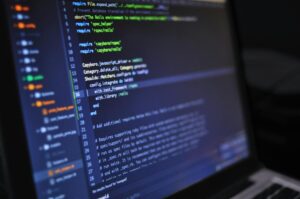Game hacking has long intrigued hobbyists and professionals alike in the world of programming. A potent technique called DLL injection lies at the core of such activity. This approach, which is often surrounded by mystery, allows one to change how a game behaves while it is running. This blog post will discuss the role, features, and uses of DLL Injection in Python game hacking.
Understanding DLL Injection
DLL or Dynamic Link Library injection is a method that alters the behavior of an active process by inserting a custom DLL into its memory space. This allows code to be executed within the context of another program, giving the attacker control over various aspects of the application. In-game hacking, can be used to change game data, and gameplay mechanics and bypass security measures.
How DLL Injection Works
Each step in the DLL injection process is important for its success. Firstly, the person injecting it must find which process they want to manipulate; usually, this will be the game's executable currently running in memory. Once they have done so, a custom DLL containing their desired code modifications needs to be created.
If you want to inject a DLL, you must use functions such as Windows' CreateRemoteThread. This function allows you to create a new thread within another process's memory space. Then, inside that thread, load the custom DLL and let the game execute any code related to it. Depending on what is inside your DLL, various things can happen, ranging from simple changes to completely different behaviors triggered by the games.
The role of DLL injection in Python game hacking
Python has gained popularity with game hackers due to its easy syntax and large libraries. The Ctypes library for Python helps in DLL injection by allowing users to interact with functions provided by the C programming language and make system calls, thus allowing the necessary operations required for DLL injection to be performed.
Practical Applications in Game Hacking
One of the best tools for game hackers is DLL injection. They use it in many different ways to manipulate and control games. For instance, a common approach involves developing trainers, which are programs that change things like health points, scores, or bullet amounts. A user can then adjust these during runtime by injecting a DLL so that a particular memory address contains the desired value. This, therefore, gives players advantages like unlimited health and resources.
Bots are another type of software made possible through the application of DLL injection in games. With them, it becomes easy to automate repetitive tasks within games, such as farming for resources or completing quests. Injected with a DLL, bots can interact with the game environment just like human players do, executing complex series of events accurately and quickly.
Furthermore, anti-cheat bypassing can also be achieved by injecting a DLL into a game process. Many video games nowadays come with some sort of anti-cheating protection, but most of them tend to rely on heuristics. This means they try to identify cheats based on how other programs behave rather than what they actually do. Once injected, however, these measures become vulnerable since their code is now within reach of other hacking tools, thus making the detection almost impossible.
Ethical Considerations and Legal Implications
But regardless of its technical appeal, certain moral and legal aspects must not be overlooked when dealing with DLL injection and game hacks. Unauthorized alteration of software is against the rules of nearly every game’s terms of service, which could result in serious penalties like account suspension or even prosecution by law. So, before you start breaking them, ensure that you understand what risks may arise from your actions.
Many game hackers recommend that they utilize their knowledge ethically, such as notifying developers about flaws or increasing their awareness about software security. When programmers engage in ethical hacking, they can improve the gaming community and cybersecurity in general.
Conclusion
DLL injection is a powerful technique for Python game hacking with many uses. It enables hackers to change game processes, create cheats, and circumvent security measures while working in the game’s memory space. However, this should be done with care because “with great power comes great responsibility.” Therefore, if one is interested in hacking games, one must know the legal and moral aspects involved.

